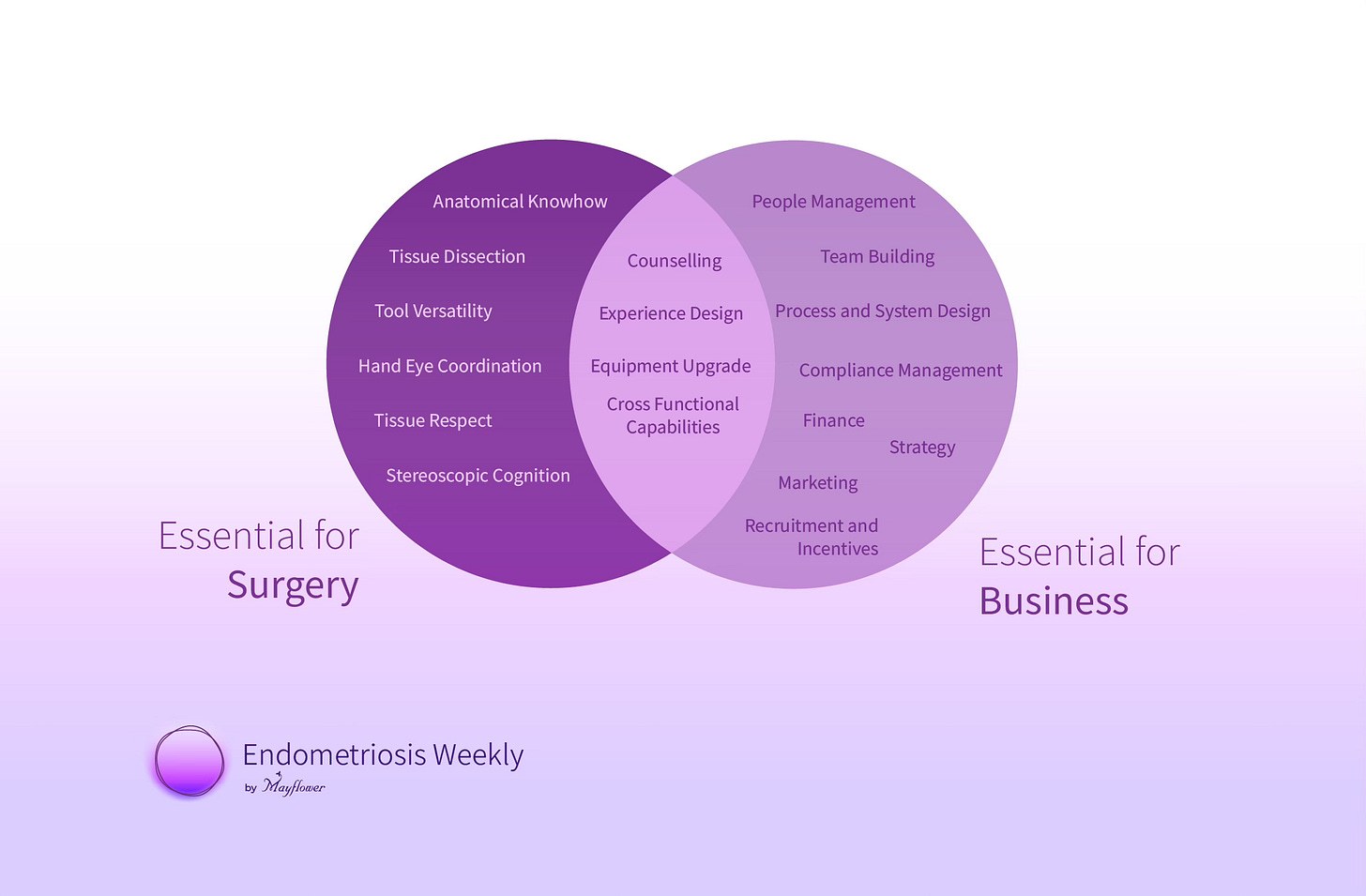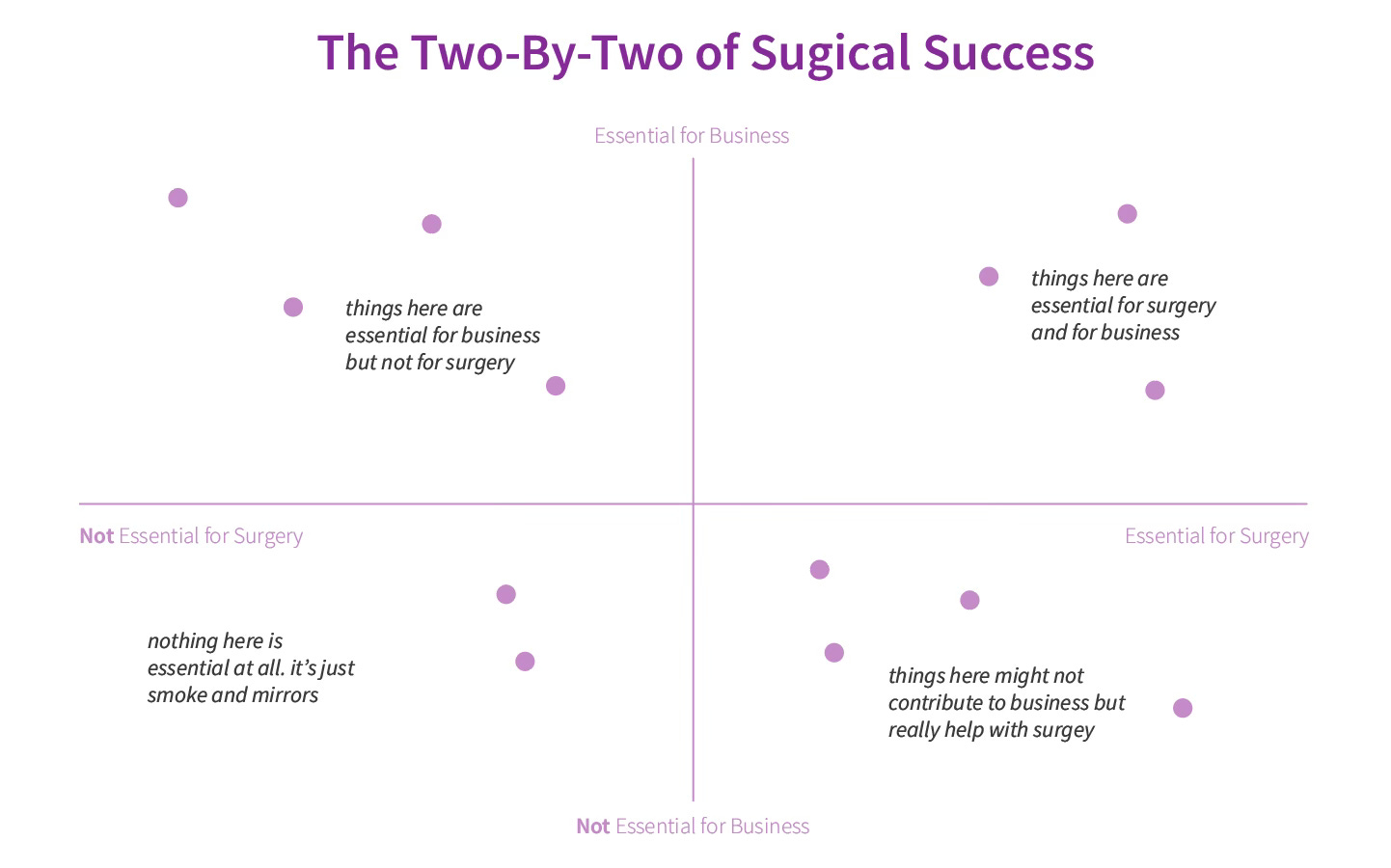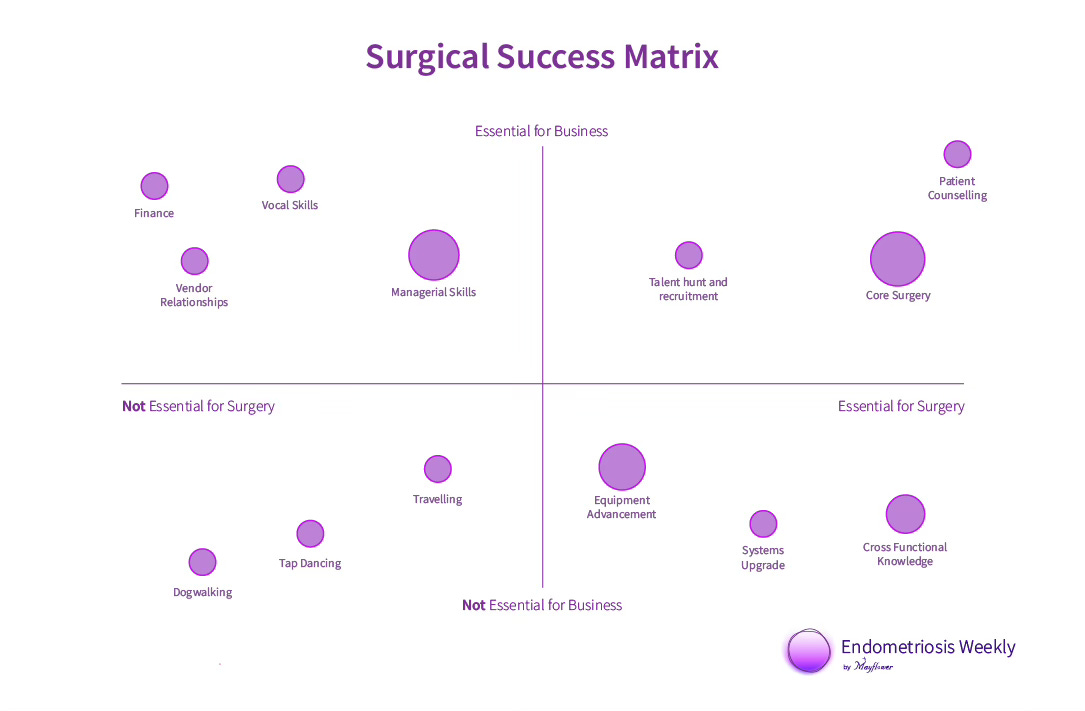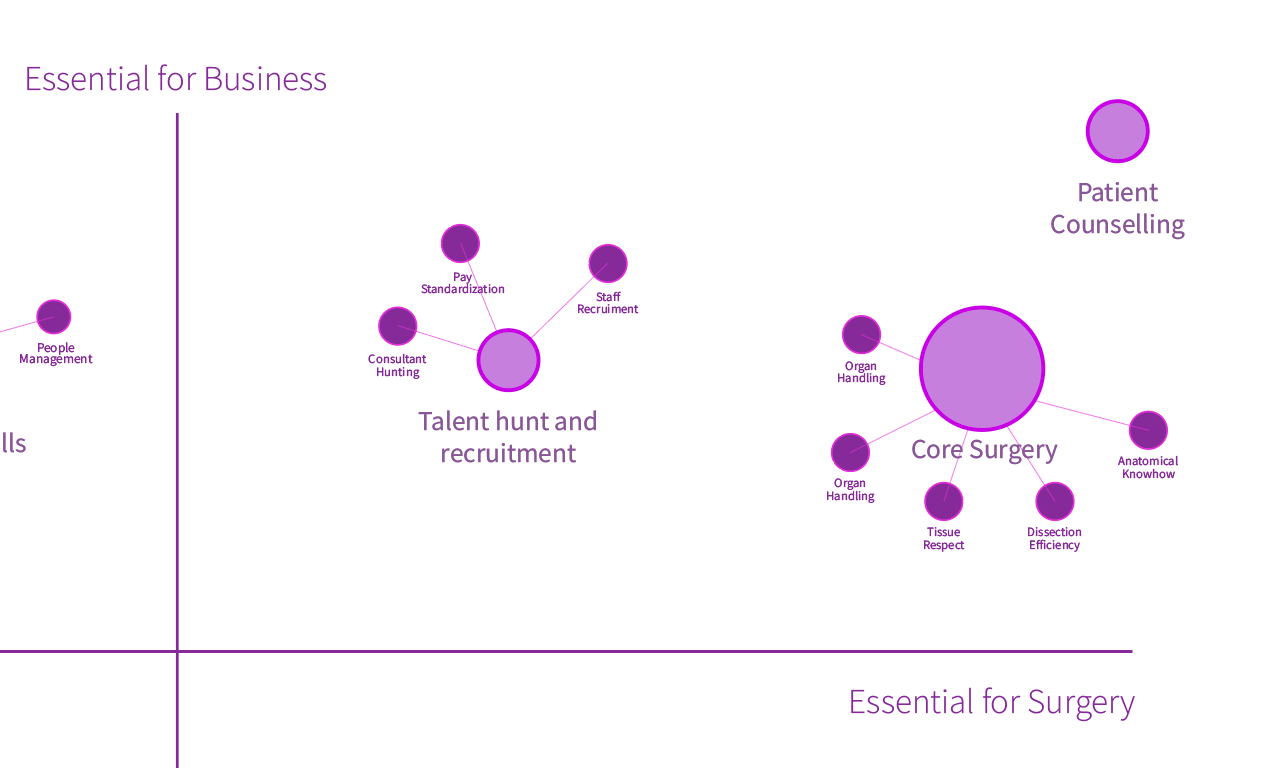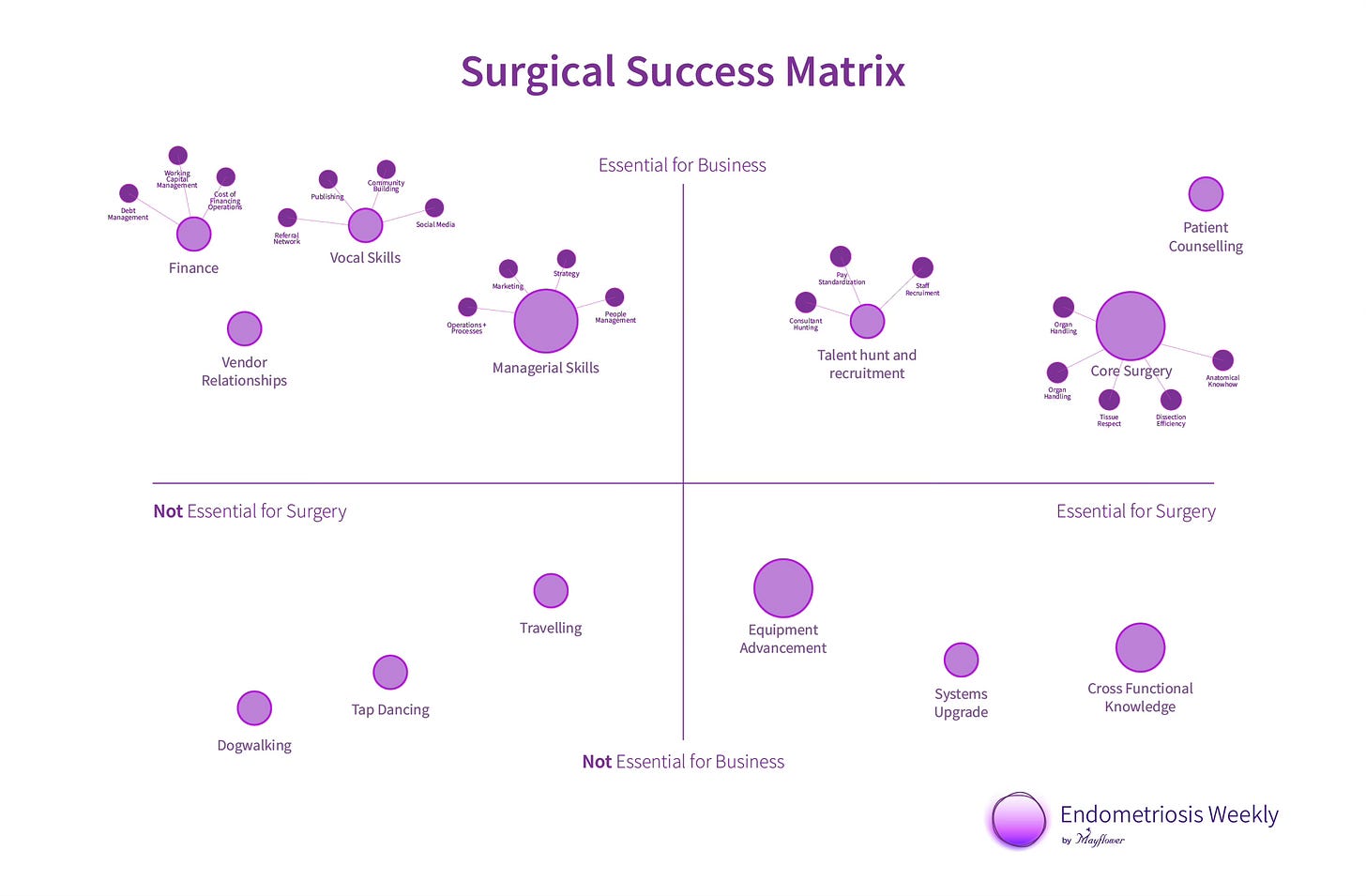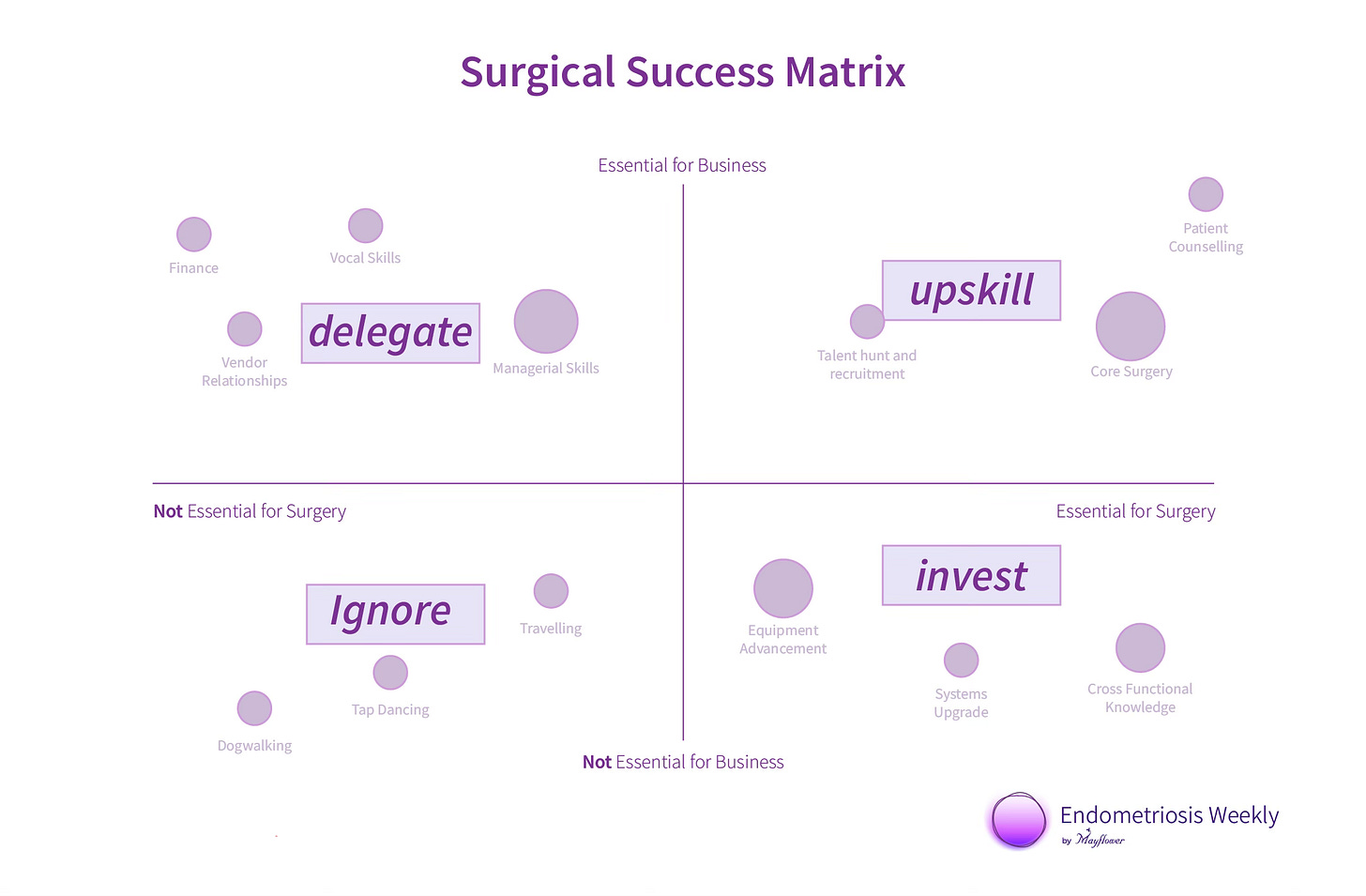The Bucket List of Surgeon Skills for Treating Endometriosis
Whether you're just starting out or trying to keep up, this list will bring you up to speed
A good surgeon is a cliche.
Talent is abundant.
Walk on any street of Delhi and 3 plastic surgeons and 4 IVF specialists will tell you that they have the best facility in the city for what money can buy. And might not even be wrong.
Being good at what you do is actually overrated
More often than not, ability isn’t what success depends upon. Besides the definition of success being highly subjective, and a huge function of luck, even within the scope of things that you can control, the role of ability itself is limited.
You and I both know so many mediocre people who are extremly successful, and so many talented people waiting for their moment to happen.
This week, we talk about success by looking at what makes for a thriving practice. What are the roles that you must play, and what can you do to fill in for the roles you can’t?
Running a practice of treating Endometriosis is hard, especially when awareness is still low and women on an average go anywhere between 6 to 10 years with symptom-showing endometriosis without ever getting diagnosed for it.
Note we talk about a practice and not just the act of surgery.
The Practice has two parts - The Surgery, and The Business of Surgery
There are aspects essential for surgery, like your understanding of the anatomy, and your comfort of dealing with the various tissue types that you encouter in surgery.
Then, there are aspects essential for business. Like how well you manage your working capital, your team building, compliance, process and systems design, etc.
And there’s enough wisdom in all of us to know that there are things that lie in the middle. Like counselling that plays a role in effective surgery as well as a funnel for business. Or equipment upgrades where a one time capital expenditure can help you increase efficiency and lower costs across various levels.
But WAIT!
Someone yelled form the back of the room. “There are no clear compartments! What about something like vendor relationships. It’s very important for both surgery and business but I don’t know where to put it”
I agree. There could be a lot of things you need to be good at that can’t be slotted here. There’s got to be a better way!
There is! It’s called a Two-By-Two!
Okay. This looks fancy! Now let’s start putting all the things we listed on this graph now and see where it goes!
Core Surgery is all the way on the left and on top. Manegerial skills are somewhere in the middle (somewhat essential for surgery) but definitely very important for business.
Finance is all the way on the other end. Very very important for business but how much money you have in the bank has nothing to do with what vessel you will ligate first in a TLH.
I have varied the side of each dot by how important I thought they were. This is now an opinion. You and I can have differences and that’s okay.
The bigger dots can actually be broken down into smaller parts that make them up
Like Talent hunt and recruitment, which has been a huge area of focus for us at Mayflower, is complex and essential both to efficiency of work and that of business. It’s probably the strong force for any organization and involves hunting for consultants, excellent staff and administrators, training, development, pay standardization, and more.
On the other hand, managerial skills can be broken down into people management, operations, process design, marketing, strategy, and more.
Finance involves the management of debt, working capital, cost of capital, and so on.
Put together, it’s a complex web of skills
You Can’t Do Everything
You and I both realise that we can’t do everything. So do what you can, and for what you can’t I have a solution. I always have a solution.
Upskill
In everything that is essential for both your brand and your practice. There’s no escaping it and the sooner you grab on to it, the better.
Invest
In things that have an obvious long term benefit but don’t show any immediate promise of revenue. They almost always pay off in the long run.
Delegate
For things that are essential for your business but you don’t have the patience to deal with, delegate. Don’t make the mistake of holding on to them and making yourself the bottleneck. Find someone smart enough to do it, pay them well, and push it off your plate.
Ignore
For everything that doesn’t fit into being important for business or the art of surgery, ignore. Warren Buffet and Bill Gates have both said that the only things that gets you to where you want to go is focus. Double down on focus.
Do this much, and don’t forget to send us 10% of whatever million dollars you make.
That’s some food for thought for this week. Do you think we should put more dots on the matrix? What does your matrix look like? Share with us on ew@mayflowerhospital.com
Until next time!







